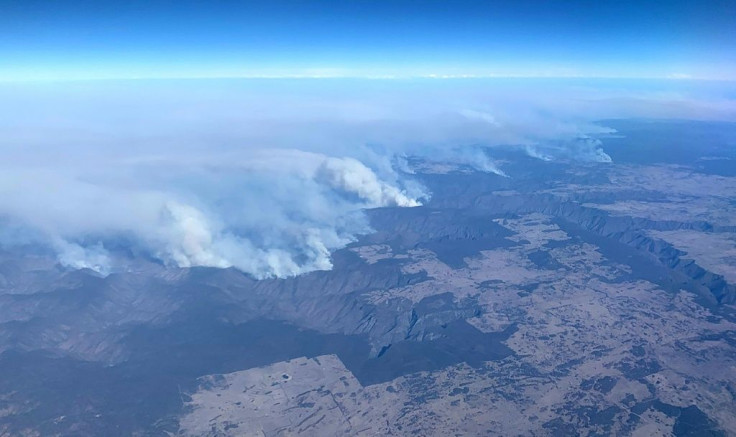Climate Change News: Report Warns Of Catastrophe If Global Warming Unchecked

KEY POINTS
- The world already has warmed by more than 1 degree Fahrenheit and even a further minimal increase poses serious threats
- As warming increases, military conflict over water resources would be inevitable
- The most fragile parts of the world are at the most risk
The Center for Climate Security, an institute of the nonprofit, nonpartisan Council on Strategic Risks, warned Monday climate change poses a high-to-catastrophic threat to security, necessitating the a phase out of greenhouse gas emissions.
The report by the center’s National Security, Military and Intelligence Panel, “A Security Threat Assessment of Global Climate Change,” identifies major threats with a global temperature rise of 2 to 4 degrees Fahrenheit and a 4 to 7-degree rise on such things as social and political instability, risks to military missions and infrastructure and risks to security institutions.
The report comes as U.S. conservatives gear up to counter arguments at the Conservative Political Action Conference outside Washington.
“Higher levels of warming will pose catastrophic, and likely irreversible, global security risks over the course of the 21st century,” the report warns.
Among the key findings are that even a 2 to 4-degree increase in temperature presents a very high security threat and a 7-degree rise could be catastrophic for arctic regions, South America, much of Africa, the Arabian Peninsula, the Asian subcontinent and Southeast Asia.
The report predicts armed conflict over water resources, weather disasters and mass migrations as livelihoods are lost and violence mounts.
“Climate change is an evolving and multidimensional threat, caused by no single actor, but perpetuated by current human systems of energy, transportation, agriculture and resource use,” the report warns.
The most fragile parts of the world are at the most peril from minimal warming, with threats materializing rapidly, destabilizing international relationships on which U.S. and international security depend and posing risks for military missions.
“The science has long been clear, and the security community is adding compelling analysis of the threats climate change pose to people and nations. It’s long past time for vigorous action to address them,” said Rod Schnoover, an advisory board member.
Sherri Goodman, senior strategist, advisory board member and former U.S. deputy undersecretary of defense, said no region of the world will be unaffected by climate change and what she called a “pressing risk.”
The report recommends first reducing and then phasing out greenhouse gas emissions as soon as possible; climate-proofing environments, infrastructure, institutions and systems on which human security depends, with investments focused on the future for adaptation, disaster response and peacebuilding; and renewing in U.S. efforts to prioritize, communicate and respond to climate security threats.
At CPAC, which is scheduled to begin Wednesday in National Harbor, Maryland, German teenager Naomi Seibt is scheduled to make her U.S. debut as the anti-Greta Thunberg, the Swedish teenager who has been scolding world leaders on their inaction regarding climate change.
Seibt, 19, is being promoted by the conservative think tank, the Heartland Institute, and is the face of the group’s campaign to undermine scientific conclusions about the dangers of global warming. Seibt, who also espouses far-right positions on feminism and immigration, argues predictions about climate change are exaggerated, though she does not dispute that greenhouse gases contribute to the warming of the planet.
© Copyright IBTimes 2024. All rights reserved.






















